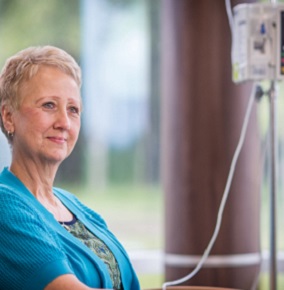Southern Illinois Healthcare (SIH)
Investing in Healthcare Services for Underserved Communities
In the rural, southernmost communities of Illinois, 18% of residents live in poverty with historically low levels of education and high rates of illness and mortality. SIH serves this 16-county area known as the Illinois Mississippi Delta Region, which is considered medically underserved.
The federal 340B drug discount program has been a vital lifeline for hospitals that are often the sole providers of care in communities with high poverty levels. Without SIH, residents would have to travel over 100 miles to reach the next closest institution providing similar services.
 SIH has seen $23 million in annual savings from the 340B program, designed for hospitals providing a high level of services to low-income individuals or serving isolated rural communities. SIH does both. Savings and revenue generated from the 340B program have helped SIH meet the healthcare needs of underserved southern Illinois communities.
SIH has seen $23 million in annual savings from the 340B program, designed for hospitals providing a high level of services to low-income individuals or serving isolated rural communities. SIH does both. Savings and revenue generated from the 340B program have helped SIH meet the healthcare needs of underserved southern Illinois communities.
Because of 340B, SIH has been able to advance its mission of promoting the health and well-being of communities through healthcare and comprehensive services. These include:
-
Expanding cancer care and infusion services;
-
Providing patient access to medication assistance programs;
-
Funding chronic disease and diabetes self-management programs;
-
Providing support and services related to behavioral health; and
-
Increasing access to needed oral health services for low-income patients who seek care in emergency departments.
Yet, pharmaceutical companies recently started implementing barriers which limit access to drug savings hospitals use to invest in patients. Such roadblocks include limiting contract pharmacy relationships to one per covered entity, radius requirements, claims share/data requirements and National Drug Code restrictions.
“These constraints amount to over $2 million annually which could have gone to patients,” said SIH Chief Financial Officer Warren Ladner. “The negative impact of the manufacturer restrictions includes medication adherence issues (missed doses, delays) and impact continuity of care, resulting in readmissions and an overall increase in our health system’s total cost of care.”
In 2022, SIH provided $168 million in uncompensated care. Among its patients, 75% have Medicaid and Medicare, or lack insurance. SIH leaders are asking legislators to preserve and protect the 340B drug discount program as an essential part of the healthcare safety net that does not rely on taxpayer dollars.

